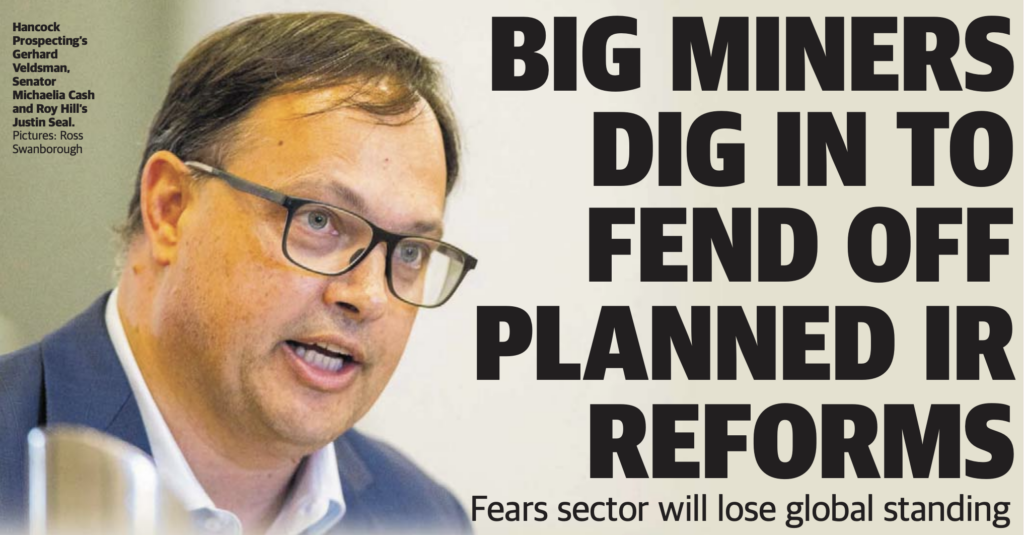

Article Rebecca Le May & Gerard Cockburn courtesy of The West Australian.
Fears sector will lose global standing.
WA’s mighty mining sector has held firm in its opposition to the Federal Government’s controversial industrial relation reforms, urging it to back down on provisions that will hurt both the sector and the broader economy.
On what was a highly combative day in Perth at the Senate inquiry into the Fair Work Legislation Amendment (Closing the Loopholes) Bill, witnesses were grilled intensely and also lampooned at times by Labor senators Linda White and Tony Sheldon.
There were also terse exchanges between the pair and Liberal senators Linda Reynolds and Michaelia Cash. Gerhard Veldsman, chief executive of group operations at Gina Rinehart’s Hancock Prospecting, argued the changes would jeopardise the global competitiveness of WA’s mining sector and kept his cool when poked about his billionaire boss.
Senator White asked if it “passes the pub test” for Australia’s richest person to oppose “a Bill that supports people who are being ripped off through labour hire arrangements?”
The Bill seeks to stop companies from using labour hire workers to undercut the rate of pay agreed to by directly employed staff. Mr Veldsman said Hancock supported businesses being able to use labour hire and the Bill’s war on that was the biggest bone of contention.
“We don’t believe we’ve ripped off anybody through labour hire,” he said, after Roy Hill executive Justin Seal said the company’s 122 labour hire truck drivers were earning “actually equivalent . very similar” to what a permanent employee was being paid.
But Mr Veldsman said that, under the Bill, there was no guarantee those different categories of driver would continue to be paid about the same. “We’re talking about draft legislation where the ‘full rate of pay’ is so unclear, so undefined, so broad and so open to speculation that we can’t say in future if this Bill is to actually pass that we can still do that,” he said.
Lynas Rare Earths chief executive Amanda Lacaze said the changes would create a “minefield of complexity and uncertainty” for employers, lumbering them with major compliance burdens.
Mr Veldsman added a number of Hancock’s projects had already stalled due to red tape. Another major concern is a proposal to give casual workers the right to ask to convert to permanent employment after six months of regular hours.
The provision worries two sectors that rely heavily on casuals agriculture and hospitality with National Farmers’ Federation board member Tony York warning it would prompt some farmers to reduce crops. WA Australian Hotels Association CEO Bradley Woods said businesses with seasonal operations and in remote locations needed casual staff.
However, Unions WA secretary Owen Whittle said the laws were “a pretty modest step in starting to move against what has been a deterioration in real wages . . . and the race to the bottom across many of our vital industries” while rents in WA had soared by more than 30 per cent.
The Bill also seeks to criminalise wage theft and bolster protection for gig workers.















